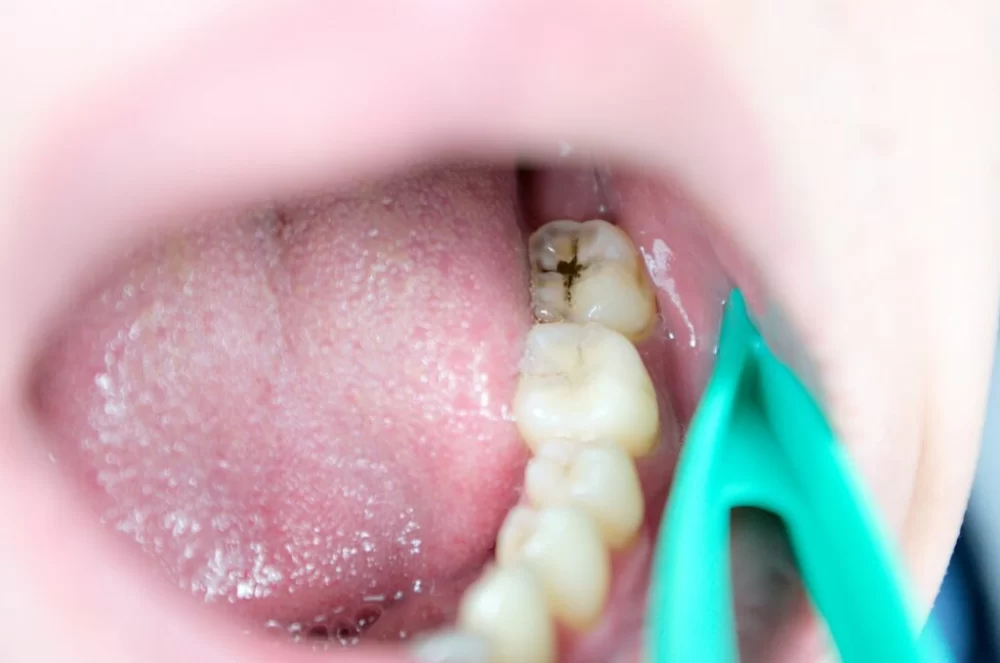
Should You Treat Cavities in Baby Teeth That Are About to Fall Out?
1. Why Are Baby Teeth Important?
Many parents assume that because baby teeth eventually fall out, cavities in these teeth aren’t a big concern. However, baby teeth play a crucial role in speech development, chewing, and maintaining space for permanent teeth. Ignoring cavities in baby teeth can lead to pain, infection, and even problems with adult teeth alignment.
2. Do You Need to Treat Cavities in Baby Teeth That Are About to Fall Out?
Whether or not to treat cavities in baby teeth depends on several factors, such as the tooth’s location, severity of decay, and how soon it will naturally fall out.
2.1 Factors to Consider
- Time Until Tooth Falls Out: If the tooth is about to fall out within a few months, minimal intervention may be needed.
- Severity of the Cavity: A small cavity might not cause major issues, but deeper decay can lead to infection and pain.
- Impact on Oral Health: Untreated decay can spread to neighboring teeth and affect permanent teeth.
2.2 When Treatment Is Necessary
If a cavity is causing pain, spreading infection, or affecting your child’s ability to eat or speak, treatment is usually recommended. In some cases, dentists may perform a simple filling or a baby root canal to prevent further damage.
3. Treatment Options for Cavities in Baby Teeth
3.1 Dental Fillings
If the tooth still has a few years before falling out, a dentist may recommend a filling to prevent the decay from worsening.
3.2 Silver Crowns
For severe cavities, especially in molars, dentists may place a stainless steel crown to protect the tooth until it falls out naturally.
3.3 Fluoride Treatments
In cases of minor decay, fluoride treatments can help strengthen the enamel and slow down cavity progression.
4. How to Prevent Cavities in Baby Teeth
Preventive care is key to avoiding cavities in the first place. Encourage proper brushing habits, limit sugary snacks, and schedule regular dental checkups.
5. Should You Treat or Wait?
Every child’s dental health is unique, so it’s best to consult a pediatric dentist for personalized advice. If the tooth is close to falling out and the cavity isn’t severe, monitoring it might be enough. However, if there’s pain or infection, treatment is essential.
Want to ensure your child’s teeth stay healthy? Check out our top-recommended kids' dental care products today!







 Buena Park Smile Dental Group4.0 (37 review)
Buena Park Smile Dental Group4.0 (37 review) Jared B. Williams D.D.S.4.0 (18 review)
Jared B. Williams D.D.S.4.0 (18 review) Thornwood Family Dental - South Elgin4.0 (198 review)
Thornwood Family Dental - South Elgin4.0 (198 review) Glamorous Smile Dental Spa5.0 (17 review)
Glamorous Smile Dental Spa5.0 (17 review) Midwestern University Dental Institute3.0 (101 review)
Midwestern University Dental Institute3.0 (101 review) Drs. Trava, Oh, Petix, Shon & Yang4.0 (21 review)
Drs. Trava, Oh, Petix, Shon & Yang4.0 (21 review) The Importance of Oral Health Education During Pregnancy for a Healthy Pregnancy
The Importance of Oral Health Education During Pregnancy for a Healthy Pregnancy Best Tips for Brushing Your Teeth Properly for Healthy Gums: Essential Techniques for Oral Health
Best Tips for Brushing Your Teeth Properly for Healthy Gums: Essential Techniques for Oral Health Why Skipping Dental Checkups Can Lead to Bigger Oral Health Problems
Why Skipping Dental Checkups Can Lead to Bigger Oral Health Problems Advantages of Porcelain Dental Restorations
Advantages of Porcelain Dental Restorations How Can Diabetes Cause Tooth and Gum Problems? Preventing and Managing Oral Health Issues
How Can Diabetes Cause Tooth and Gum Problems? Preventing and Managing Oral Health Issues Healthy Habits for Promoting Good Oral Health and Hygiene: Tips for a Healthy Smile
Healthy Habits for Promoting Good Oral Health and Hygiene: Tips for a Healthy Smile